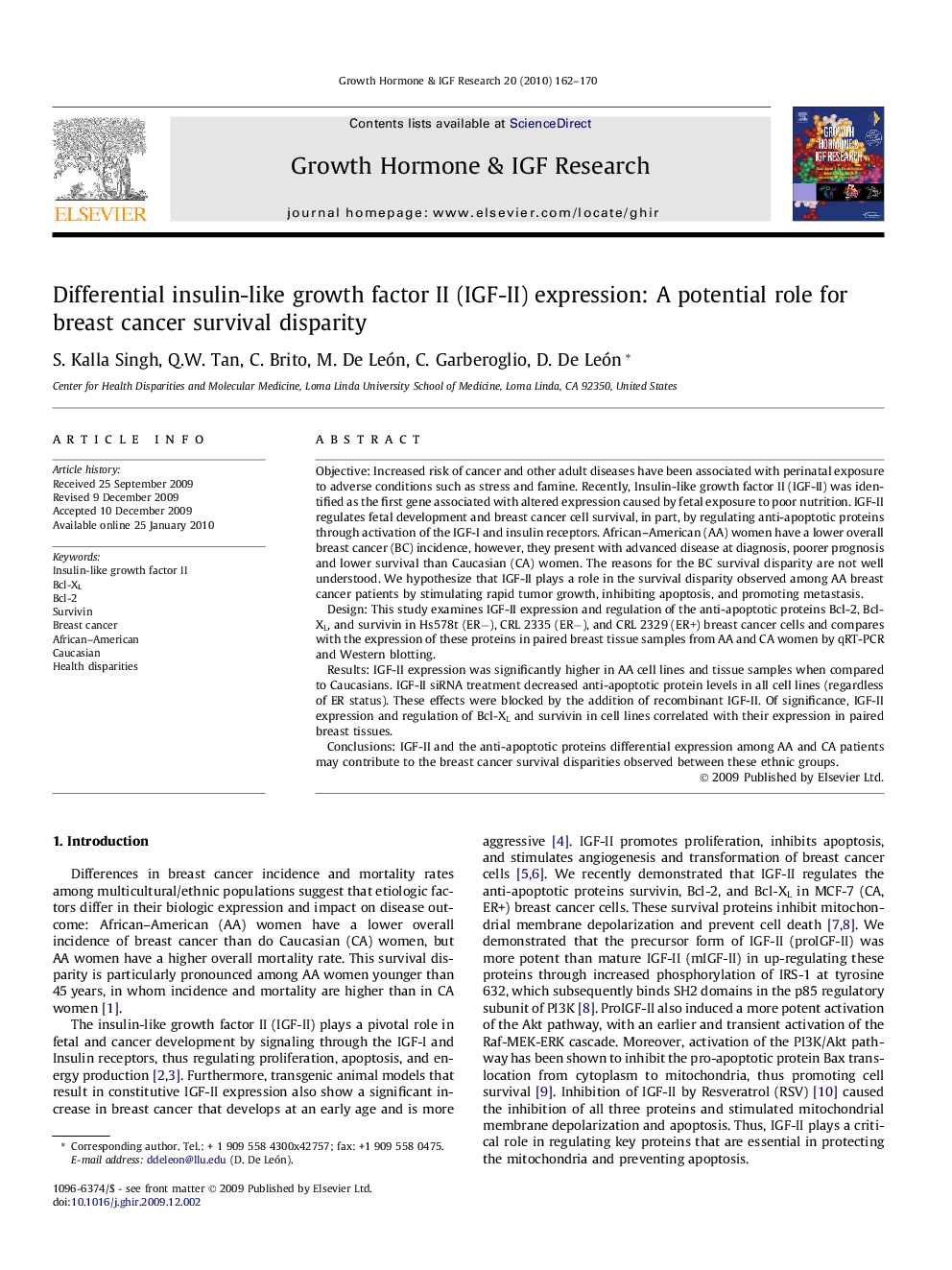| Article ID | Journal | Published Year | Pages | File Type |
|---|---|---|---|---|
| 2803011 | Growth Hormone & IGF Research | 2010 | 9 Pages |
Objective: Increased risk of cancer and other adult diseases have been associated with perinatal exposure to adverse conditions such as stress and famine. Recently, Insulin-like growth factor II (IGF-II) was identified as the first gene associated with altered expression caused by fetal exposure to poor nutrition. IGF-II regulates fetal development and breast cancer cell survival, in part, by regulating anti-apoptotic proteins through activation of the IGF-I and insulin receptors. African–American (AA) women have a lower overall breast cancer (BC) incidence, however, they present with advanced disease at diagnosis, poorer prognosis and lower survival than Caucasian (CA) women. The reasons for the BC survival disparity are not well understood. We hypothesize that IGF-II plays a role in the survival disparity observed among AA breast cancer patients by stimulating rapid tumor growth, inhibiting apoptosis, and promoting metastasis.Design: This study examines IGF-II expression and regulation of the anti-apoptotic proteins Bcl-2, Bcl-XL, and survivin in Hs578t (ER−), CRL 2335 (ER−), and CRL 2329 (ER+) breast cancer cells and compares with the expression of these proteins in paired breast tissue samples from AA and CA women by qRT-PCR and Western blotting.Results: IGF-II expression was significantly higher in AA cell lines and tissue samples when compared to Caucasians. IGF-II siRNA treatment decreased anti-apoptotic protein levels in all cell lines (regardless of ER status). These effects were blocked by the addition of recombinant IGF-II. Of significance, IGF-II expression and regulation of Bcl-XL and survivin in cell lines correlated with their expression in paired breast tissues.Conclusions: IGF-II and the anti-apoptotic proteins differential expression among AA and CA patients may contribute to the breast cancer survival disparities observed between these ethnic groups.
